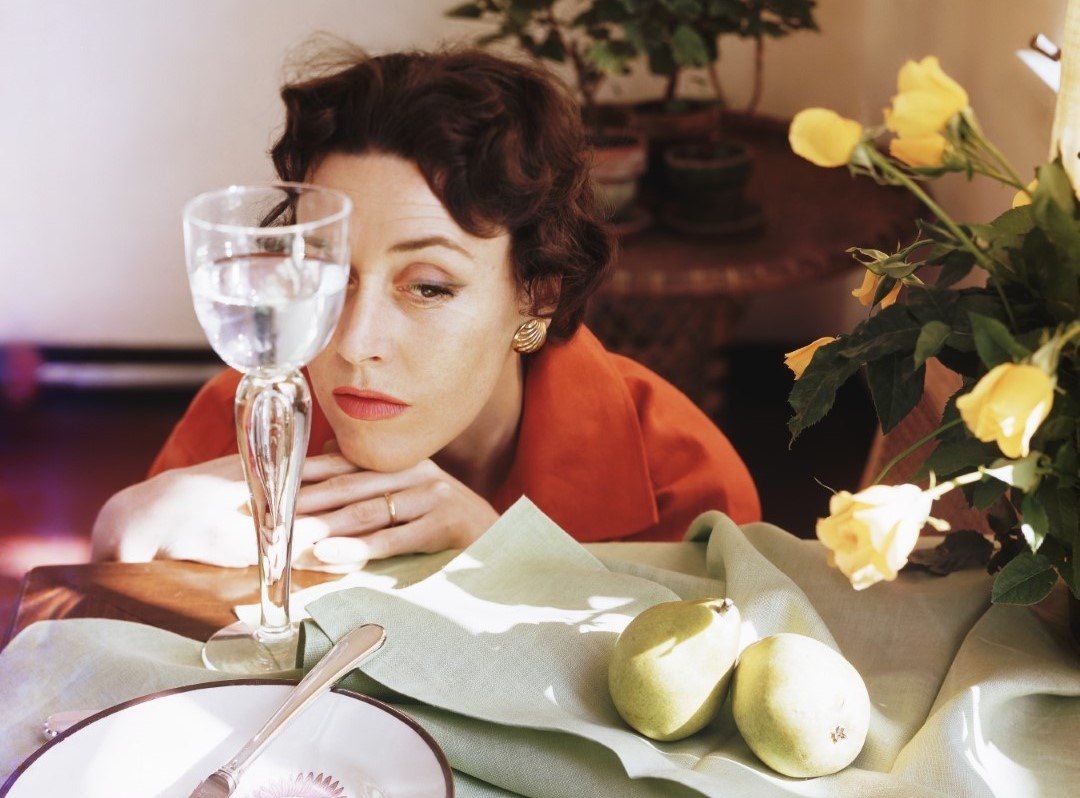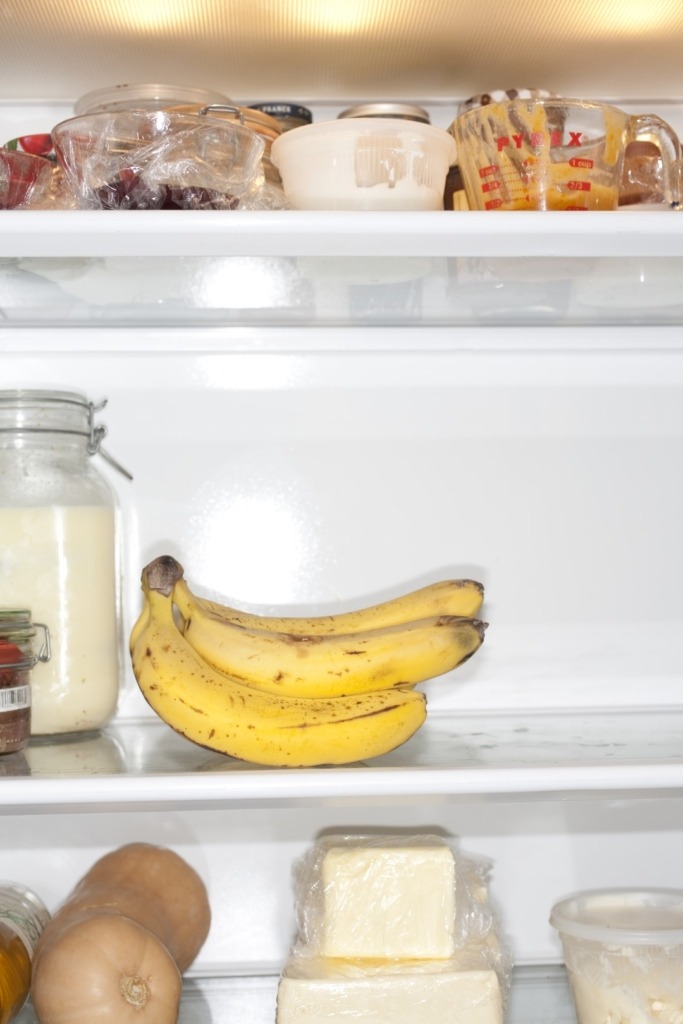8 Ways To Reset A Negative Relationship With Food
Forget “almond mum” culture.
Vogue AdriaMarch 23, 2024


Forget “almond mum” culture.
Vogue AdriaMarch 23, 2024
You might assume that having a bad relationship with food is as cut and dry as whether you have an eating disorder, such as anorexia nervosa or bulimia, or not. However, according to Dr Sophie Mort, clinical psychologist and mental health expert at Headspace, “Many of us have unhealthy relationships that are much more subtle than the eating disorders we have heard about in the media or have experienced in our lives.”
“A bad relationship with food often entails seeing food as sinful, ie something to be controlled or restricted, and ignoring the body’s hunger signals,” she tells Vogue. “It can involve having a strong inner critic that pops up whenever you think about food, telling you that you are bad for wanting food, and then berating yourself even more strongly should you eat that food.” Between 1.25 and 3.4 million people in the UK are affected by an eating disorder, with many more experiencing negative relationships with food. Charlotte Faure Green, a BANT Registered Nutritionist, speaker and writer, tells Vogue that this can entail a “preoccupation with calorie counting; avoiding whole food groups through fear of weight gain/poor health outcomes; binge-eating during times of stress or low mood; and secretive eating”.
The other key signs of a dysfunctional relationship with food include “avoiding social occasions due to a lack of control around meals; excessive thoughts around food and planning; and compulsion to exercise to ‘undo’ less healthful eating”. You might also be ignoring hunger cues; “saving” food calories so that you can over-indulge later on; or partaking in frequent body checks.

Vogue Archive
Social media and celebrities can play a big part in forming these connections, especially with the rise in influencers and the harmful way media has now evolved. “In today’s media-dominated world, escaping the pervasive diet culture seems impossible, when the industry strategically fosters unhealthy relationships between consumers and food,” Faure Green says. “Celebrities and influencers flood TikTok and Instagram with aesthetically pleasing accounts, portraying themselves as wellness experts with 5am workouts, low-calorie meals, ab checks and ‘What I Eat In a Day’ videos. However, beneath the surface, it perpetuates damaging aspects of diet culture, disguising its harmful effects.”
She points to the concept of “social proof”, when, subconsciously, viewers feel the pressure to emulate these seemingly “together” women, associating their lifestyle with eating habits and appearances.
So-called “Almond Mums” can also have an impact on mental health and the associations you develop with food in your younger years. This concept has been around since a 2013 episode of The Real Housewives of Beverly Hills, where supermodel Gigi Hadid, then a teenager, is told to eat an almond by her mother Yolanda in order to curb hunger cues and stop her from feeling weak. “Our family environment during our formative years significantly influences our later relationship with food,” Faure Green says. “Many were raised by mothers who engaged in yo-yo dieting, continuously criticising their own appearance and that of others, perhaps including their own children. As a result, we internalise their negative attitudes surrounding food and body image, and associate food with shame.”
Fortunately, there are simple steps that can be taken to reset these negative food relationships once they’ve been formed and internalised. Vogue takes a closer look at how.
Faure Green, who specialises in anxiety and stress, advises you to unfollow accounts that set unrealistic body standards or promote unhealthy eating habits. “You may have followed them for a long time, and their ways become normalised to you,” she says, “but carefully considering and curating what you are consuming every time you open those apps on your phone can be incredibly freeing.”
She also recommends losing any apps that trigger unhelpful behaviours. “Calorie counting can foster an unhealthy relationship with food because it reduces eating to a game of numbers – not all calories are created equal! The focus should be on quality, wellbeing and nourishment over quantity.” Calorie tracking may also lead to “obsessive thoughts about food, constant self-monitoring, and feelings of guilt or failure when ‘going over’ your allotted daily calories. It also discourages listening to the body’s hunger and fullness cues.”
Faure Green explains that “unless you have an allergy or intolerance, there is no need to cut out an entire food group. This can lead to nutritional deficiencies.” Dr Mort also suggests practicing more mindful eating to “reconnect to your bodily cues”. “Mindfulness helps us create distance between us and our thoughts and feelings,” she says. “Through this we can choose what we truly believe, and what we want to eat and when, doubling our chances of getting back in sync with our body’s needs.”
Find different ways to manage stress that don’t involve food. Faure Green recommends finding different outlets to help, such as meditation, exercise, knitting, or “something a little left field like ice baths – anything that resonates with you and promotes inner peace”. Dr Mort also adds suggestions like breathing exercises, or something as simple as “texting a friend, going for a walk or playing with your dog”.
Start analysing your eating habits and paying attention to your relationship with food. Dr Mort suggests asking yourself questions, like “When do you eat? Why do you eat then? Were you hungry? Or did something else happen, eg you felt lonely, bored, or stressed.” Pay attention to the beliefs you have around food. Are some foods bad/sinful? Do they elicit shame? “There are no right or wrong answers to these questions,” she says. “We are just trying to get you in touch with your internal experiences related to food.”
“Eating doesn’t always have to be joyful, sometimes we need to eat something purely to get energy through the day, but when we can reinsert joy into eating, our whole outlook around food changes,” Dr Mort adds. She suggests signing up to a cookery class or deciding to learn to cook with your friends following your favourite chef or food influencer. “It can be a brilliant way to learn about food – what is good for us and why, and how food can be enjoyed – in a fun environment.”
If you have a complicated relationship with food and with your body, know that this isn’t your fault. “Food is complex. It isn’t just about nutrition, it links to culture, traditions and relationships,” Dr Mort points out. She explains that, from an early age, we are given food when it’s time to celebrate, for example on birthdays, and when we’re feeling sad, such as getting treats after an injection. She also points to our growing up in a society with confused views over food and steeped in diet culture. Faure Green encourages you to “nurture yourself with kindness and understanding”, which can be done by “placing positive affirmations on your bathroom mirror, or reminding yourself of your fabulous and unique qualities”.
It’s important to hang out with friends, family, or support groups who offer you encouragement and empathy, and, if you’re really struggling, seek professional help. “You might even start with a chat with your GP about your concerns,” Faure Green explains. “Consult with a therapist or nutritionist who specialises in disordered eating and body image issues, to get to the root cause of your disordered thinking around food.” But be careful of self-help accounts on Instagram. “There is a lot of unqualified misinformation out there, and your case is individual.”
If you believe you may be suffering from an eating disorder, please visit Beat Eating Disorders.
Provided by British Vogue, Kimberly Dadds